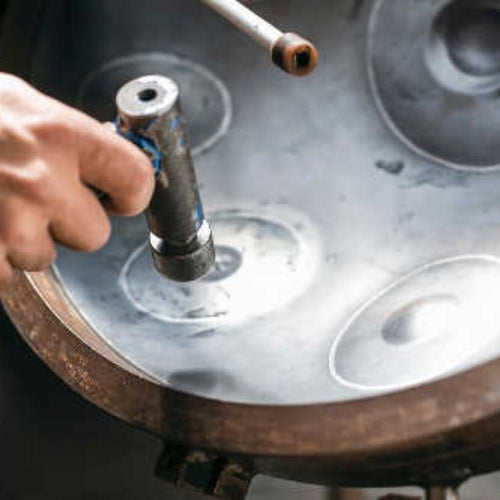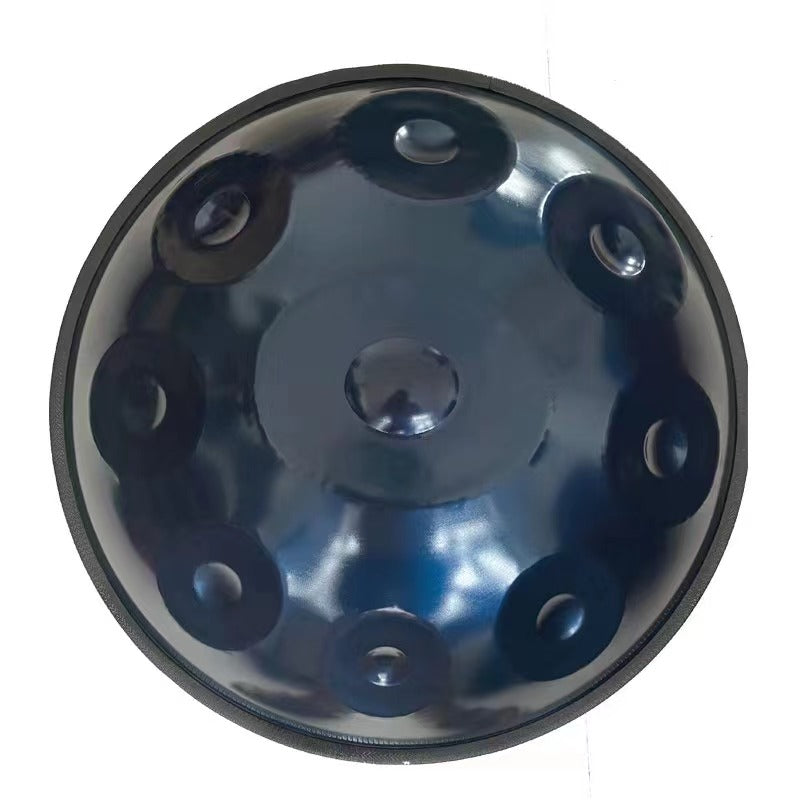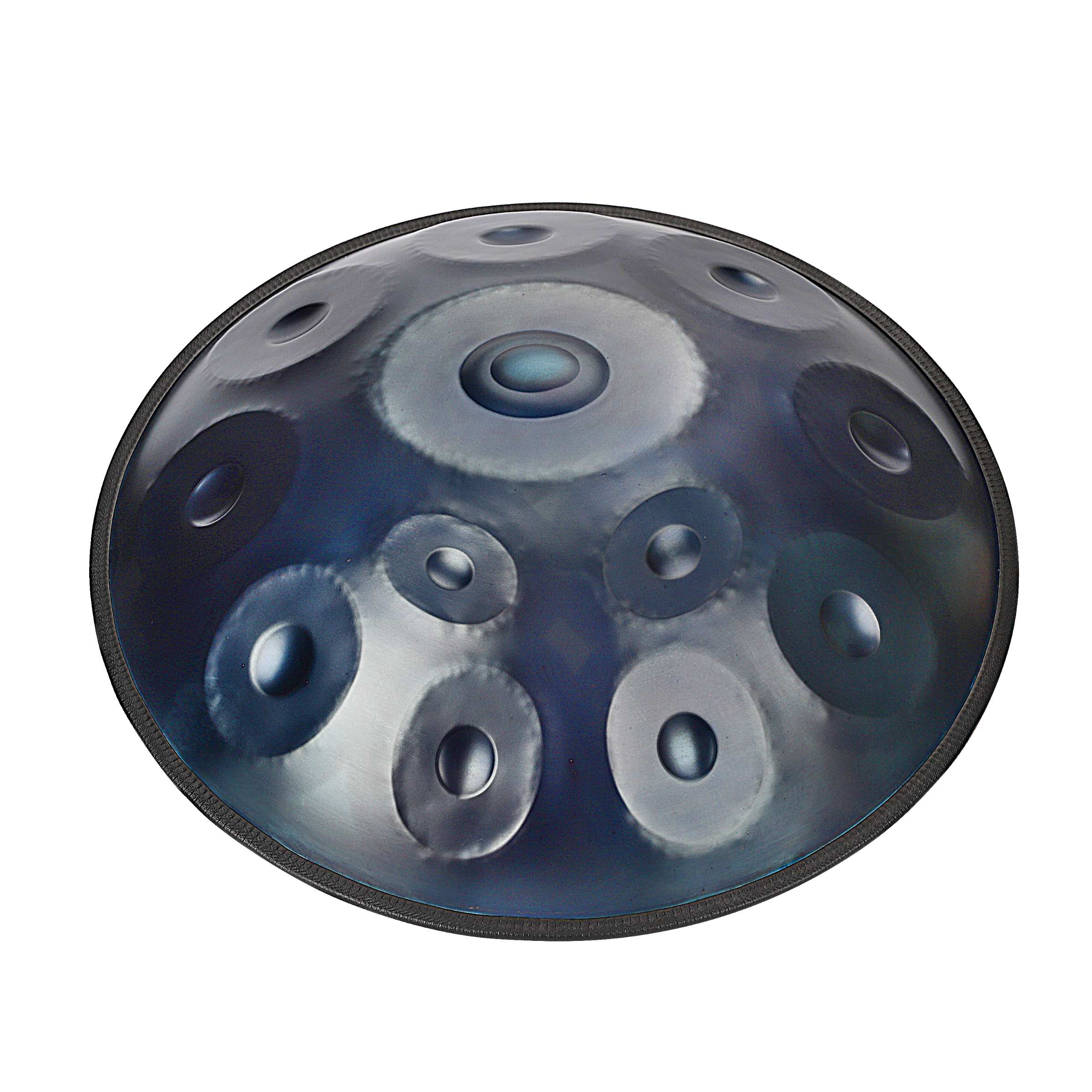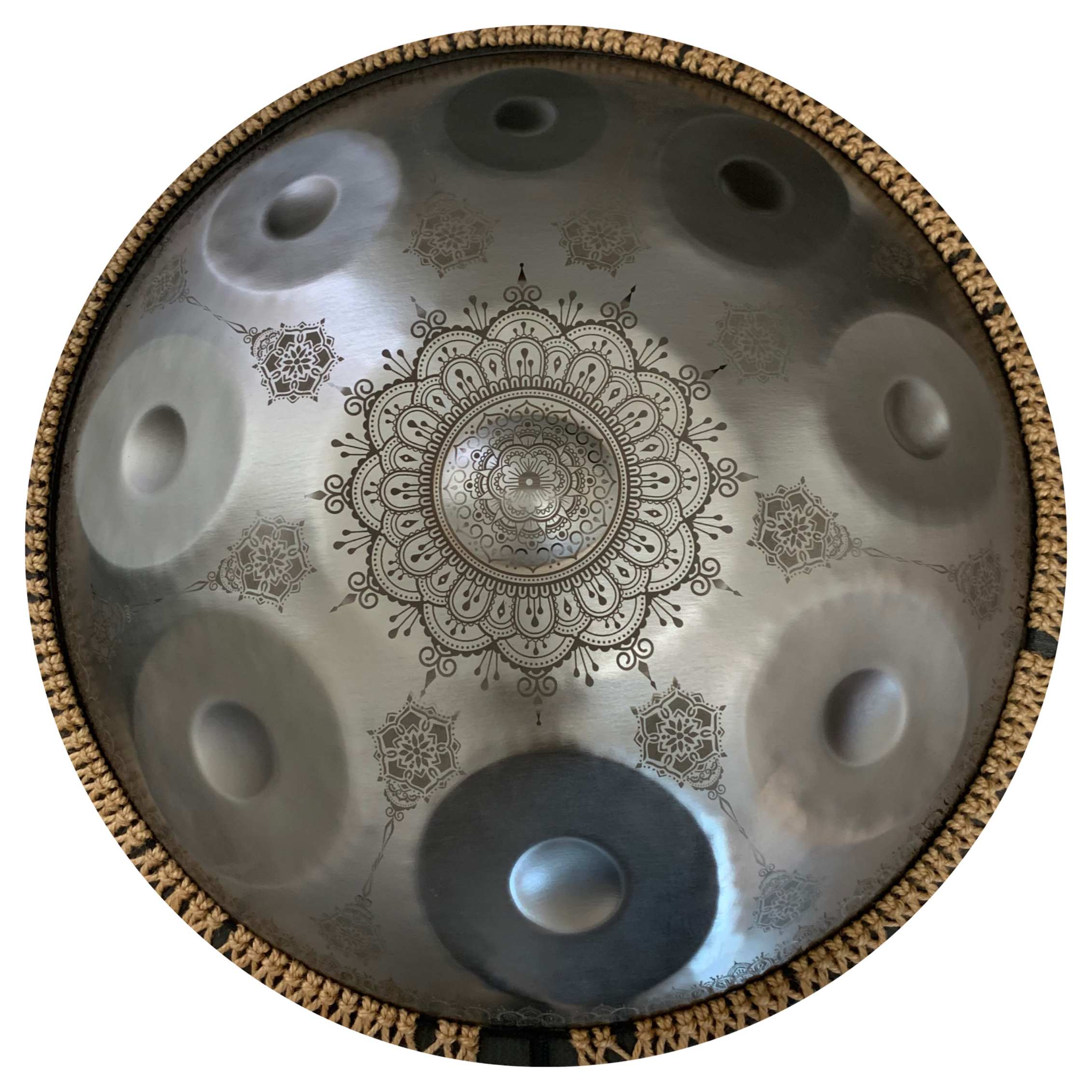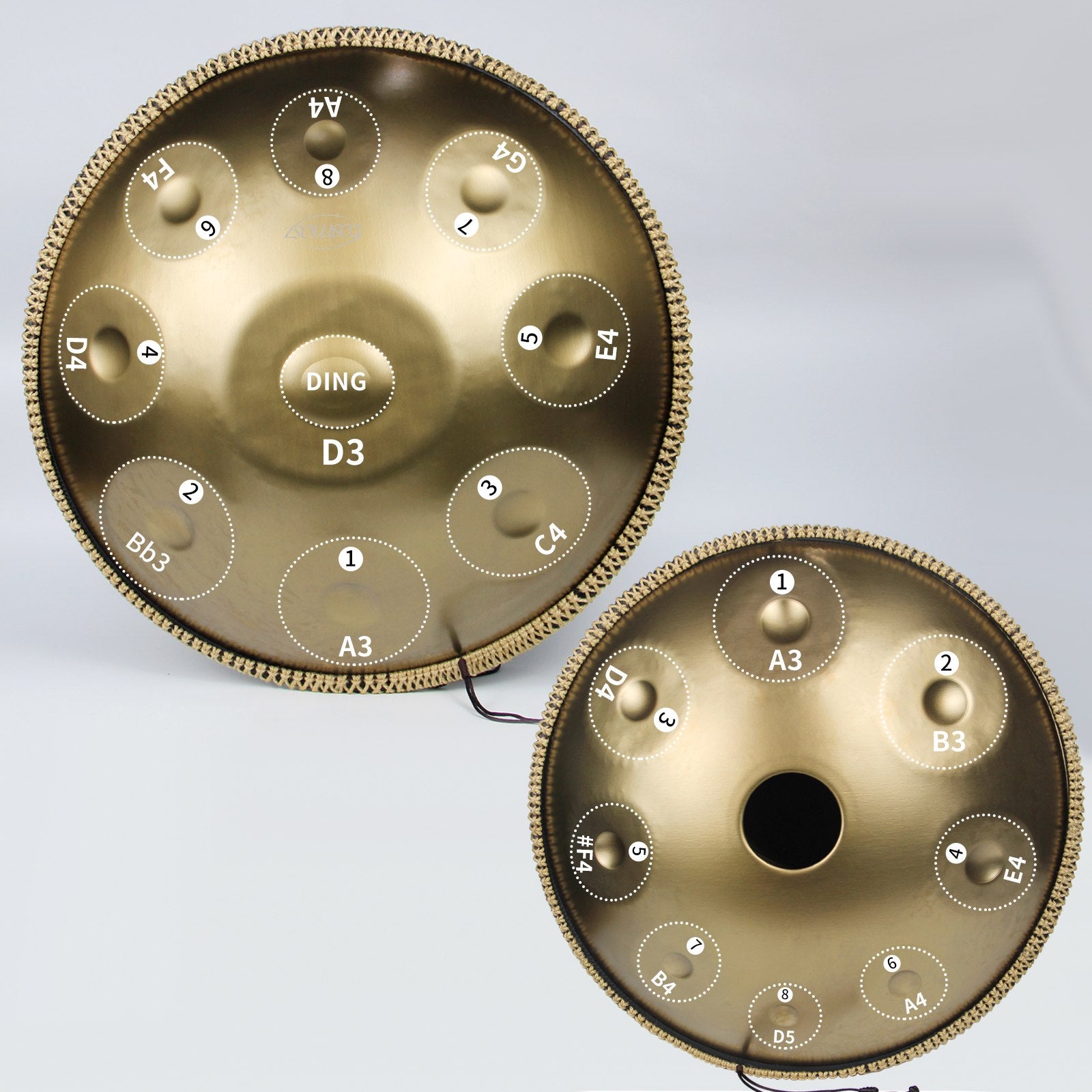
Fühlst du dich als Performer genug selbstbewusst? Gehst du zu Auditions oder Konzerten in dem Wissen, dass du von der ersten Note an dein Bestes geben wirst? Oder kämpfst du mit Zweifeln und Nervosität (vielleicht sogar Tage oder Wochen vor deinem Auftritt)?
Wenn du wie die meisten Musiker bist, findest du dich wahrscheinlich öfter in der zweiten Gruppe, als du möchtest. Das ist nicht nur ein unangenehmes Gefühl, sondern auch ein Rezept für Misserfolg auf der Bühne.
Da das Hangdrum-Instrument in den letzten zehn Jahren an Beliebtheit gewonnen hat, möchten viele Menschen lernen, wie man es spielt und es auch selbstbewusst spielt. Obwohl das Instrument relativ einfach ist, kann es schwierig sein, die Technik zu verfeinern. Glücklicherweise kann jeder mit ein wenig Hingabe und Konzentration lernen, die Handpan-Trommel selbstbewusst zu spielen, wenn man etwas übt. Befolgen Sie also diese Tipps, um Ihre Lampenfieber zu überwinden und mit Selbstvertrauen gut aufzutreten.
Denke daran: Selbstvertrauen hängt nicht nur von Talent oder Übung ab.
Die gute Nachricht ist, dass Sie Ihr Maß an Selbstvertrauen anpassen können und tatsächlich viel Einfluss darauf haben. Das mag Sie überraschen, da viele annehmen, dass Selbstvertrauen hauptsächlich eine Charaktereigenschaft ist, etwas, das man entweder hat oder nicht. Andere glauben, dass nur Erfolg oder positives Feedback das Selbstvertrauen stärken können und dass man Fehler vermeiden oder "Misserfolge" erleben muss, um selbstbewusster zu werden. Viele Menschen haben das Gefühl, dass ein Mangel an Selbstvertrauen auf mangelnde Übung zurückzuführen ist.
Nun, es stellt sich heraus, dass all dies einfach Missverständnisse sind. Trotz ihres Erfolgs erleben viele Musiker erhebliche Selbstzweifel und Unsicherheiten. Es gibt auch einige Musiker, die nicht die talentiertesten waren, aber die Erwartungen aller übertroffen haben, weil ihr Vertrauen in sich selbst unerschütterlich war. Die meisten von uns wissen, dass mehr Übung nicht unbedingt Selbstvertrauen aufbaut. Was musst du also tun, um Selbstvertrauen zu gewinnen?
Wie man ein selbstbewusster Performer wird
Die Beherrschung Ihres Selbstgesprächs ist ein wesentlicher Schritt, um ein selbstbewussterer Darsteller zu werden.
"Ob zum Besseren oder Schlechteren, wir neigen dazu, auf das zu hören und zu glauben, was wir uns selbst sagen. Wenn du dir immer wieder sagst, dass du ein Verlierer und ein untalentierter Scharlatan bist, wirst du anfangen, es zu glauben. Du wirst schnell das Gefühl haben, ein Versager zu sein, und schließlich auf eine Weise handeln, die diese Wahrnehmung von dir selbst verstärkt, wodurch du "beweist", dass du ein Versager bist."
Meistere deine innere Stimme, um Leistung und Selbstvertrauen zu steigern
Denke daran, dass dein Unterbewusstsein alles hört, was du dir selbst sagst, und keinen Filter hat. Es wird alles aufnehmen, was du sagst, und schließlich die konsistentesten Signale als Realität akzeptieren – unabhängig davon, ob sie genau sind oder nicht.
Dein inneres Selbst hat keine Ahnung oder kümmert sich nicht darum, was du meinst, wenn du sagst: „Ich werde dieses Stück niemals gut spielen können.“ Es ist unklar, ob dir tatsächlich die Fähigkeit fehlt, dieses Stück zu spielen, ob du einfach härter arbeiten musst oder ob du es für eine Weile auf die lange Bank schieben solltest. Dein Unterbewusstsein nimmt es einfach auf, und im Laufe der Zeit wirst du dich unfähig fühlen, diese Komposition zu spielen. Du wirst eher dazu neigen, auf dieser Annahme zu handeln, vielleicht halbherzig daran zu arbeiten, weniger einfallsreich zu denken und eher aufzugeben, wenn du feststeckst. Schließlich wirst du erkennen, dass du, wie du es vorhergesagt hast, mit der Komposition kämpfst. Dies ist als sich selbst erfüllende Prophezeiung bekannt, und wir untergraben uns ständig selbst (auch in unserem Leben außerhalb der Musik), indem wir neue selbstbeschränkende Vorhersagen erfinden.
Wenn du dich sicherer fühlen, handeln und sein möchtest, musst du zuerst deinen Geist beherrschen und anfangen, wie eine selbstbewusste Person zu denken.
Die meisten von uns sind sich nicht vollständig bewusst, was wir uns selbst sagen, insbesondere beim Üben oder Aufführen. Der erste Schritt besteht also darin, diese Gedanken zu erkennen und festzuhalten, um zu lernen, wie man wie eine selbstbewusste Person denkt.
Identifizieren Sie Ihr Selbstgespräch
Die große Mehrheit der Gedanken, die dein Geist erzeugt, wenn du unter Stress stehst, ist unhilfreich. Sie sind häufig belanglos („Wie ist das Wetter morgen?“), überanalytisch („Halte ich mein Handpan in dem perfekten Winkel?“) oder selbstzerstörerisch („Ich werde wahrscheinlich diesen nächsten Übergang vermasseln.“).
Ihr Gehirn kann sich immer nur auf eine bestimmte Sache gleichzeitig konzentrieren. Das bedeutet, dass Sie Ihren Geist mit hilfreichen oder schädlichen Gedanken füllen können – es liegt an Ihnen!
Die Konzentration deines Gehirns ist wie Geld ausgeben – du kannst es nutzen, um Selbstvertrauen aufzubauen oder um Selbstzweifel zu nähren. Es gibt keine neutrale Wahl; jeder Gedanke hilft oder schadet deinen Zielen. Um negatives Denken zu stoppen, beginne damit, zu bemerken, worauf dein Geist jetzt fokussiert ist.
Ändere dein Selbstgespräch
Jetzt ist der Moment, um deine inneren Denkmuster so zu verändern, dass sie mehr Vertrauen und zukünftigen Erfolg in der Leistung fördern.
Schau dir all die negativen Gedanken an, die du in deinem Notizbuch aufgeschrieben hast. Du wirst feststellen, dass diese Gedanken oft über die Vergangenheit oder die Zukunft sind, über die du im Moment keinen Einfluss hast. Gedanken, die mit Misserfolg zu tun haben, sind ebenfalls unproduktiv, da sie dir in keiner Weise nützen. Alles, was sie tun, ist, dass du dich schlecht über dich selbst fühlst.
Tipps, die Ihnen helfen, selbstbewusster zu werden
Üben Sie regelmäßig
- Erstellen Sie ein diszipliniertes Übungsprogramm, das technische Übungen, Repertoire und Aufführungssimulationen kombiniert.
Leistungsbedingungen simulieren
- Übe deine Kompositionen vor Freunden und Familie oder nimm dich sogar selbst auf, um eine Aufführungssituation zu imitieren.
- Übe Handpan-Musik an verschiedenen Orten, um dich an unterschiedliche Aufführungsbedingungen zu gewöhnen.
Mentale Strategien entwickeln
- Verbringen Sie Zeit damit, sich vorzustellen, wie Sie selbstbewusst und effektiv auftreten. Stellen Sie sich die begeisterten Reaktionen des Publikums und deren Zufriedenheit mit einer gut ausgeführten Darbietung vor.
Positives Selbstgespräch
- Erstelle eine Reihe positiver Affirmationen über deine Leistung. Wiederhole diese Affirmationen, um dein Selbstvertrauen zu stärken und Angst zu verringern.
- Erstelle eine Liste von Affirmationen, wie "Ich bin vorbereitet und fähig", und wiederhole sie vor und nach den Übungseinheiten.
Achtsamkeit und Entspannung
- Versuchen Sie Achtsamkeitsmethoden wie tiefes Atmen, progressive Muskelentspannung oder Meditation, um Ihren Geist vor der Aufführung zu beruhigen.
Schaffen Sie eine Routine
- Erstelle eine Reihe von Aktionen oder Ritualen, die vor jeder Aufführung befolgt werden sollen, wie Aufwärmübungen, mentale Vorbereitung oder Atemtechniken.
- Entwickeln und verbessern Sie eine Routine vor der Aufführung, um sich geerdet und vorbereitet zu fühlen.
Entspannungstechniken üben
- Tiefes Atmen, Dehnen oder das Hören von beruhigender Musik können Ihnen helfen, sich vor Ihrer Aufführung zu entspannen.
- Experimentiere mit verschiedenen Entspannungstechniken, um herauszufinden, welche am besten für dich funktionieren.
Akzeptiere Unvollkommenheiten
- Akzeptiere, dass Fehler bei Live-Auftritten unvermeidlich sind, und konzentriere dich auf das gesamte Erlebnis statt auf Perfektion.
- Erinnere dich daran, dass jeder Fehler macht, und diese mindern nicht die Gesamtqualität deiner Leistung.
Arbeiten Sie mit einem Mentor
- Arbeiten Sie mit einem Mentor oder Coach zusammen, um Ihre Leistungsfähigkeiten zu verbessern und eventuelle Ängste im Zusammenhang mit Lampenfieber zu lösen.
Einer Gruppe beitreten
- Tritt einer Musikgruppe oder einem Ensemble bei, um Erfahrung zu sammeln und deine Fähigkeiten im Spiel des Hang-Instruments mit anderen zu teilen.
Abschluss
Eine Handpan-Performance entwickelt Vertrauen, das weitgehend mentale Vorbereitung, Fähigkeitenentwicklung und praktische Ansätze berücksichtigt. Sie können Ihre Angst reduzieren und ein besseres Spielerlebnis haben, indem Sie mentale Techniken üben, um fokussiert zu bleiben und gut mit Leistungsangst umzugehen. Lassen Sie Ihre Liebe zu dem Handpan-Pandrum Sie zu einer immer unterhaltsameren Performance bringen, bei der Sie sich sicherer fühlen.

